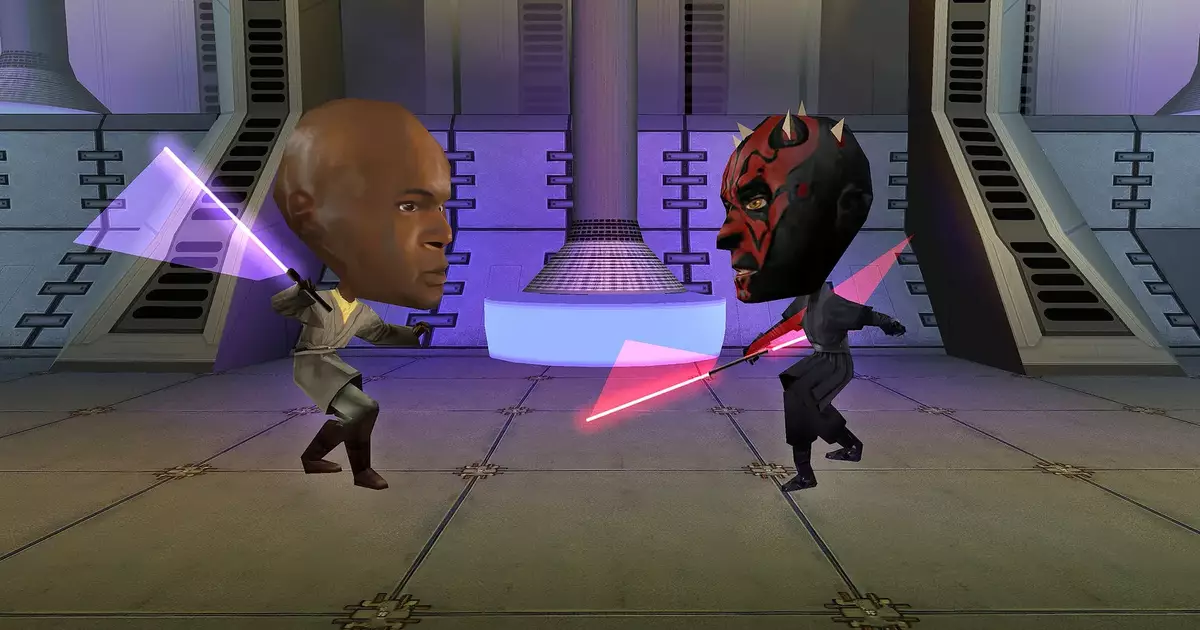For many gamers, the announcement of Aspyr’s port of *Star Wars: Episode I: Jedi Power Battles* to PC and Steam evokes a mix of excitement and trepidation. Originally launched in 2000, this game has maintained a peculiar allure among fans of the franchise, marked by both nostalgia and a hefty dose of critical skepticism. Its gameplay, a blend of platforming and brawling, is certainly a product of its time, illustrating the era’s limitations while simultaneously providing joy to a select few who managed to look past its flaws.
Reflecting on my formative years spent with this game, I recall late-night sessions battling through the nebulous pastures of the *Star Wars* universe—led by my complete obsession with lightsabers and the fictional lore surrounding them. Despite the nostalgic glow associated with those long gaming nights, it’s hard to ignore the questionable mechanics and frustrating design choices that also defined the experience. But therein lies the crux of the game’s appeal; it’s as much about the shared struggles and exhilaration as it is about the gameplay itself.
A Journey Outside Time
At its core, *Jedi Power Battles* serves as a 3D platformer that follows the plot of *The Phantom Menace*, albeit in a way that diverges wildly from cinematic reality. As players guide characters like Qui-Gon Jinn and Obi-Wan Kenobi across treacherous terrains and labyrinths, the game often twists the intentions of its source material. The narrative takes a backseat to the combat mechanics, yet the appeal lies in the adventurous spirit embodied within the characters’ moves and animations. How many players have found joy in mocking the game’s absurdities while attempting not to plummet to their digital demise?
However, the upcoming PC port promises intriguing upgrades—not only will it retain the charm of the original game, it aims to enhance it. Offering a choice between modern and classic controls, unlockable secret areas, and a slew of new features like Big Head mode, Aspyr has committed to breathing new life into the experience. This is a welcome contrast to some of the less successful ports we’ve seen in the gaming world, where nostalgia often struggles against the ravages of time.
As gamers reflect on *Jedi Power Battles*, mistakes from past console experiences linger in the collective memory. From unresponsive controls to less-than-ideal graphics, the game represents a particular facet of gaming history that has irrevocably shaped its legacy. Aspyr’s challenge lies not only in updating the visuals and controls but in preserving the spirit of the original, which often resonates more with diehard fans than with casual gamers.
Many will approach the new release with a combination of hope and anxiety, recalling the poorly executed port of *Battlefront*. Maintaining fidelity to the original assets while enhancing user experience without self-sabotaging is the expert tightrope Aspyr must navigate. Fans of the genre deserve a product that not only respects their memories but also offers a polished gaming experience.
As a gamer, my experience with *Jedi Power Battles* epitomizes the complexities of nostalgia. It’s a mixed bag of laughter, frustration, and fond memories. The game became an essential cornerstone of my adolescent identity, entwined with my burgeoning interest in the *Star Wars* universe, even as it coincided with periods of personal exploration and embarrassment. Perhaps the most significant takeaway is how *Jedi Power Battles* transcends its flaws to evoke a sense of camaraderie among its community, bridging a connection born from our collective struggles with its sometimes-ridiculous gameplay.
With its impending release, I find myself torn between anticipation and skepticism, dreading yet eager to revisit those memories intertwined with both triumph and personal shortcomings. It’s a second chance not just for Aspyr but for everyone who bravely traversed the landscapes of *Jedi Power Battles* in their formative years. As we countdown to January 23rd, we can only hope that this resurrected classic finds its rightful place among modern gaming experiences.

